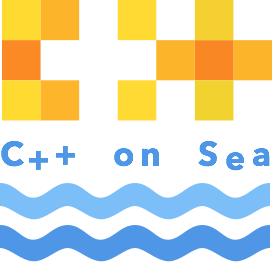C++20 Features and Fixes in VS 2019 16.1 through 16.6--Stephan T. Lavavej
Did you get up to date?
C++20 Features and Fixes in VS 2019 16.1 through 16.6
by Stephan T. Lavavej
From the article:
We’ve been busy implementing C++20 features in MSVC’s compiler and Standard Library, and migrating the latter to microsoft/STL on GitHub – in fact, we’ve been so busy that we haven’t posted a C++ toolset changelog since the VS 2019 16.0 toolset changelog. So, here are the compiler features and STL features/fixes that have shipped for production use in the last year.
As a reminder, the /std:c++17 and /std:c++latest compiler options are necessary to use C++17 and C++20 features...


 All you need to know;
All you need to know; Getting up to date.
Getting up to date.